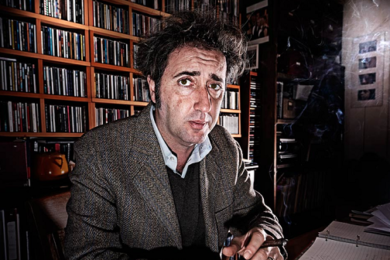Everyone knows what happened to Amy Winehouse. You couldn’t escape the news headlines, the radio items or TV documentaries. The media were relentless in their portrayal of her meteoric downfall, and the public do love a good celebrity kicking. Those pictures of Winehouse stumbling out of the Hawley Arms in Camden with drug-hazed eyes were tabloid and paparazzi fodder for weeks. And then she died. At just 27 Winehouse joined what Kurt Cobain’s mother called “that stupid club,” alongside alumni such as Jimi Hendrix, Jim Morrison and Janis Joplin. We already know the tragic ending to Asif Kapadia’s new documentary, but it’s the journey that makes Amy such a heartbreaking and engaging story.
Director Asif Kapadia – acclaimed for Senna but not a stranger to fiction filmmaking either – recently confessed that he wasn’t initially a fan of Winehouse’s music until he watched her play early material acoustically in some of the footage, sat in the offices of her first record label or on stage in small pubs. He also celebrates her lyrics by scrawling them across the screen as she sings in her inimitable voice. Kapadia allows us the music of course, but intercuts it with home-movies – a 14 year-old Amy singing happy birthday (Billie Holiday-style); as a teen on a girls’ holiday; in the back of cars and taxis on the way to her first gigs. As the mini-DV camera or mobile phone lingers on Winehouse’s face, often in un-flattering close-up or the occasional selfie, Kapadia lets the shot play out: “There’s just something about her face and her eyes,” he says, “especially at the beginning, they’re just so bright and amazing – I just wanted to look at her. And her face was always changing…” The change is laid bare on screen as we watch her go from a gobby spotty teen to a skinny pop icon painted in tattoos and eyeliner.
Though she never loses her cheekiness, we later see Winehouse’s defenses come up as she’s interviewed about her breakthrough debut Frank, her quips barbed and curt – she was clearly uncomfortable with the attention. These early interviews and TV appearances are later followed by derogatory comedy sketches about Winehouse’s drug addiction and her once-crisp live performances become crumpled and disheveled. Even the home-movie footage begins to lose its innocence: “Her boyfriend [Blake Fielder-Civil] gets a camera and starts filming her,” Kapadia recalls, “and it gets darker… like the wedding material when they’re making out [at an uncomfortably invasive Terry Richardson photo shoot]. Later it’s the paparazzi, and she becomes terrified of the lense.” When you see the footage of a fragile-looking Winehouse getting knocked about in a loud scrum of flash bulbs only the coldest-hearted viewer wouldn’t sympathise with her.
Though the film doesn’t shy away from Winehouse’s self-destructive nature, we are privy to tear-filled soundbites (most contributors are heard but not seen) and raw footage that exposes the often-noxious people she surrounded herself with. Kapadia had this to say about the criticism he received from Mitch Winehouse, Amy’s Dad, on his portrayal in the film: “I interviewed over 100 people, in all aspects of her life… There was a point in the edit where we asked ‘are we going to make this film or not’?… The ‘whitewash’ film wasn’t going to work, and either we tell the story with all the information we were getting or we don’t tell it. And by then we were too invested, and we liked [Amy] too much… We decided we had to go ahead and make the film and not point the finger at any single person, but just show how complicated she was and how complicated the situation was.”
Amy, especially as it concerns recent history, has to deal with the legacy of its subject, which in more nervous hands might have pushed the film into saccharine or bland territory. Yet in Kapadia’s skilled hands we’re offered an honest and raw account of a huge musical talent cut short due to so many gut-wrenching incidents and encounters. One moment we’re shown selfies of Winehouse looking like a ghostly Edvard Munch painting, the next we hear her leaving drunkenly excited voicemails for her favourite producer about new lyrics, and we hope it will all be alright…but we know how it ends. It’s a hugely powerful conclusion to the film. “Amy is about a person who wants to be loved,” says Kapadia, “someone who needs love and doesn’t always receive it.” Amy Winehouse was never an angel, but she was definitely a lost soul in need of one.
Amy is in cinemas now






